For details on Traditional Baby Shower click the link or the image below-

Published 18th January, 2016
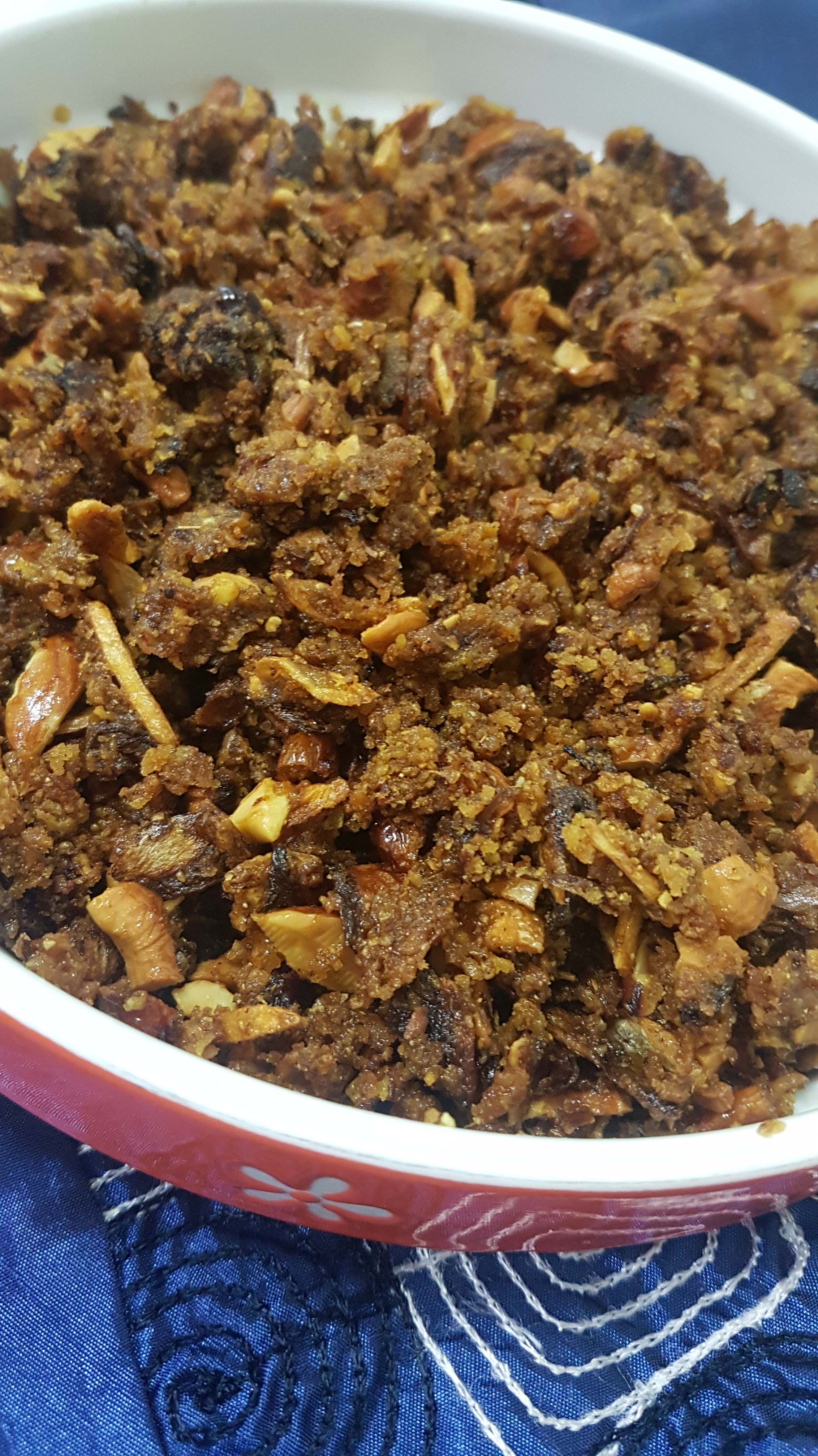
I became a grandmother this January the 10th and I cannot express how elated me and my family are on the birth of our first grandson, a son to my eldest son. I thought it opportune to write a post on Postpartum care dedicated to the new mother, my daughter-in-law, which I hope will also benefit all new mothers.
Postnatal or postpartum care refers to the confinement period immediately post delivery when physical changes that occurred in the body during the nine months preceding delivery, begin the healing process and getting back to its original state. As the new mother would be breastfeeding and also due to the loss of blood during delivery, it is necessary that high quality of nutrition must be provided in this period.
Culture plays a major role in postnatal care and beliefs. Much of the woman’s lifestyle and care during the postpartum period is strongly influenced by her culture. Every society has its own traditional beliefs and practices related to pregnancy and health care. Postpartum maternal health care greatly influences the health of both the mother and child. Like prenatal care, the postpartum health care that is typically provided during the six-week period after childbirth is very important to the mothers’ health. Effective postpartum care is essential to maximize the health of the mother and the new-born regardless of where a woman delivers. India, being a land of diverse cultures and traditions, postpartum care and diet varies, based on topography of the region, culture, tradition and religious practices.
Here I will outline some of the manglorean catholic practices. It is a common belief that the new mother’s internal organs are ‘fresh’ from childbirth and so it is important to consume foods that will provide heat and warmth to the body to accelerate the healing of the internal organs especially the reproductive organs. Nonetheless, it is imperative to have a balanced diet which includes, but not limted to, pure ghee, fenugreek seeds, fenugreek leaves, fennel seeds (saunf), garlic, ginger, carom seeds (ajwain) oats, green vegetables, dried fruits, seeds, etc. The mother must have a bowl of hot soup daily, either vegetable soup or tender fresh chicken soup. She should eat fish like, Pomfret, lady fish Kaane (Lady Fish) Curry, Raouns (Rawas/Indian Salmon), Hamour (Grouper) and avoid Mackerels, Sardines, King fish, shrimps, shell fish, etc. She must also avoid having pulses, starchy and root vegetables and meats like beef, to avoid bloating, indigestion and flatulence as this could adversely affect the nursing baby. Lots of green leafy vegetables and Yam is recommended in addition to carrots and beetroot as they are high in beta carotene and help boost liver health and are a good source of iron to alleviate post-pregnancy anemia.
Recipes for some of the typical medicinal foods namely, Methi Paez (Fenugreek seed porridge), Garlic & Ginger which are ground to a paste and cooked with jaggery and pure ghee to a jam consistency, Ajwain Paez (Carom seed porridge), Gulianchi Kheer (Rice, jaggery and coconut milk pudding with rice dumplings) and Nivol (medium thick curry made using coconut, peppercorns, carom seeds and kokum i.e.dried mangosteen/red mango) to be consumed by lactating mothers is given below. These are my Late mother’s recipes from her book Mai’s Recipes. Mai’s Recipes Contact details.
I remember my mother saying that it is advisable to give the new mother methi paez and nivol on alternate days. Then a tablespoon of the ginger or garlic can be taken daily with breakfast or in between. Ajwain paez can be taken on some days and gulianchi kheer on some days i.e. all these foods are not to be taken everyday but spread over the confinement period so as to gain the maximum benefit from these nourishing ingredients.
Fenugreek Ajwain water should be taken by the mother instead of normal water. This can be prepared by adding a teaspoon each of Fenugreek, Ajwain (Caron seeds), Cumin and Fennel (Badishep) seeds to one litre or 1.5 litres of water, bring to a boil, switch off flame, cover and let it infuse for 10 minutes. Strain and reserve, to be taken by the mother, preferably warm, throughout the day instead of normal water.
The other important lactating and strengthening food is ‘Randho’ which is a mixture of spices and various nuts and ‘Thiklem‘ a dry form of Randho which is also a mixture of spices and various nuts, onions etc. deep fried to golden brown with pure ghee. It is recommended to take a tablespoon at breakfast.
Click on the title for links to the recipe.

![141 Nivol[0]](https://cooklikececilia.com/wp-content/uploads/2016/01/141-nivol0.jpg?w=300)
The postpartum practices are many, but I will list those that are important to both the baby’s and mother’s health for the first 40 days i.e. 6 weeks of confinement and commonly practiced by us:-
For Mother:-
- The daily oil massage and bath, ideally given by ‘Elderly lady who looks after the new mother’ (balnti posteli) experienced in bath and massage for new born baby and mother.
- Postpartum belt (usually an old cotton saree/cloth is used) tied over the tummy and waist of the mother to support the back and get rid of the baby pouch. As they say it also helps squeeze out the impure blood and other impurities from the uterus which are the remanants from the delivery.
- Restricted from using cold water for washing hands, taking bath, toilet use and drinking purpose. Only warm or hot water is recommended.
- Mother is advised to lie down most of the time and preferably with legs crossed to avoid air entering the body.
- Drinking kaljira kasai (black cumin decoction) for first three days after delivery.
- Consume special food (home medicine) to increase breast milk and strengthen the bones and muscles during postnatal period.
- Refrain from sex for 40 days mainly from a medical perspective as it would allow for the episiotomy wound to be healed and avoid any infections.
- It is also said that usually one peg of alcohol (brandy) may be given to mother to prevent her from catching cold and also helps her get good sleep.
In conclusion: Generally, women and their newborn are secluded from the rest of the household to limit contamination from the polluting powers of ‘after-birth’. These are widely practiced across India, and form an intrinsic part of women’s daily lives in traditional societies.
For Baby:-
- Daily Oil massage and bath.
- Practice of exposing the baby to the dhoonp (incense) smoke after bath to protect the baby from evil spirit.
- Application of Kajal on the baby’s forehead or eyes to ward of evil eye. A small dot may be applied near the hairline if you are not too happy with using kajal.
- Use of black thread on wrists/waist/neck to prevent evil eye.
- To clean coated tongue by using a cloth/gauze dipped in glycerine.
- Advised not to cut baby’s nails with nail-cutter but rather the mother should bite the nails to make them shorter or keep baby’s hands covered in mittens to avoid them scratching themselves.
- Practice of feeding the first milk (colostrum).
- Utmost care to umbilical cord, to be kept dry using boric powder or clean with antiseptic swabs and to bury the umbilical cord when it dries and falls.
- Baby is given sun-bath, usually early morning between 7:30 am and 8:30 am to prevent and cure baby jaundice if detected. During such sun-bath, baby’s eyes are to be protected from direct contact to sun.
Although modern medicine does not necessarily advocate these customs and beliefs, they have been followed by generations and we have not seen or heard of any adverse effects because of these practices but certainly know that they do have their own benefits.
The new mother then should just allow herself to be thoroughly pampered with ample rest, massages, nutritious food etc. that she is showered upon during this period.
Related posts:
- Traditional Baby Shower
- Menu Plan for Lactating Mothers
- Postpartum care – Traditional method for preparing Thiklem & Randho
- Simple recipe for Thiklem & Randho
References:
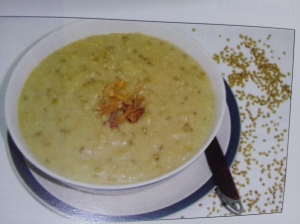
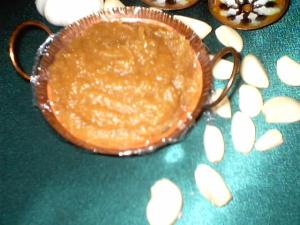
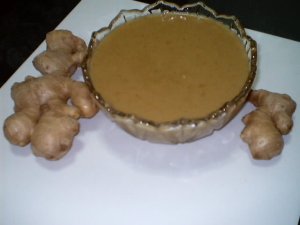
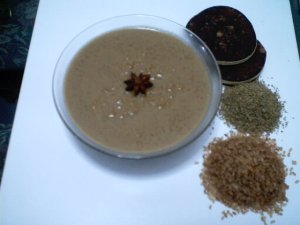
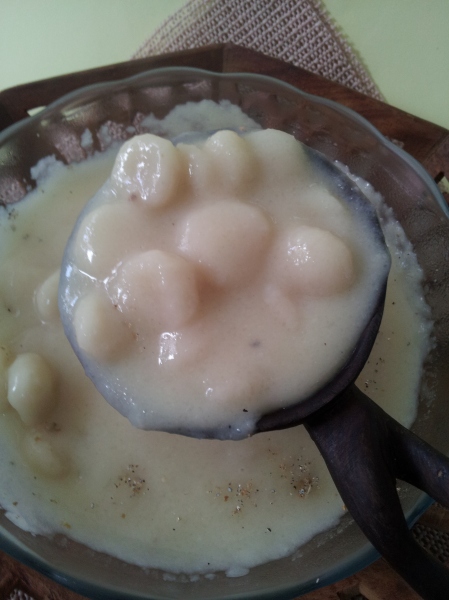

Congratulations to you on becoming a grand mother and to all your family members ! ! ! Your above recipes bring to mind all the memories of my mom and Shawn’s mom in preparing the above recipes when I became a mum…It takes in a lot of effort 🙂 Thanks for sharing the recipes ! ! !
LikeLiked by 1 person
Thank you so much Doilyn!
LikeLike
I’m unable to open the recipie- methi paez.
If you can pl aasist
LikeLike
Hello Vivien, It should open into the recipe when you click on the methi paez picture, not sure why it is not. Will check it out. Meanwhile you may type https://cooklikececilia.com/methi-paez in your browser window and it should take you directly to the recipe.
LikeLike
Thank you sincerely for your attempt at keeping alive the manglorean tradition of tried n tested natural post partum care for new moms. I love you for that. Stay blessed.
LikeLike
Thank you Irenearthi for your kjnd comment and for going through my blog. Hope it was helpful.
LikeLike
DO YOU HAVE THE RECIPE OF THIKHLE (POST NATAL FOOD) IN YOUR BOOK?
LikeLike
Hello Lynel,
Thank you for your query. I do not have Thikle recipe in the book. I am preparing to post one soon and will notify you and send you the link asap.
Regards, Cecilia
LikeLike
Thankyou so much for posting the recipe😊 it is indeed nice of you to pay heed to our request and take time to post the recipe. Many thanks again. Since my wife is due soon, and because of lockdown with no additional help, I will prepare the randho recipe as it seemed simple with ingredients. Thanks again for all the help.
LikeLike
Thank you Lynel, you are most welcome.
Wishing you and your wife all the very best
and a safe and normal delivery. Take care
and My God bless you both.
LikeLike
Pingback: Postpartum Care Thiklem and Randho | My Cooking Diaries "CooklikeCecilia.com"
Pingback: Thiklem and Randho food for lactating mothers | My Cooking Diaries "CooklikeCecilia.com"
I loved the blog can I get the traditional mangalorean virshe recipe.The Randho recipe was amazing and indeed very useful
LikeLike
Hello Shruti,
Thank you for your kind comment. I dont really understand what Virshe means. It must be some kind of medicinal brew or infusion in my opinion. I have no knowledge of this, but if I do come across in my research, shall let you know. Take care.
LikeLike
Thank you so much for sharing recipe🙂 so kind of you to pay heed to my request and take time to research on the same. “Virshe” is Konkani Saraswat medicinal infusion mostly provided to new mother post delivery to boost immunity, releive nerve pain and body ache.
LikeLike
Thank you Shruti for your explanation. You are most welcome, do feel free to reach out whenever required.
LikeLike
Thank you Cecilia for your Postpartum Care Blog. It has given me confidence how to take care of my daughters after their delivery and the recipes are great. God bless you n keep you n be gracious to you for your generosity.
LikeLike
Thank you Cecilia for your Postpartum Care Blog. It has given me confidence how to take care of my daughters after their delivery and the recipes are great. God bless you n keep you n be gracious to you for your generosity.
LikeLike
Dear Maria,
Thank you for your kind comments. Am glad the blog helped you and your daughters. Congratulations on your grandchildren and May God bless the little Angels and keep them in his loving care always.
Take care Kind Regards,
Cecilia
LikeLike
Is Randho good if a person in diabetic?
LikeLike
For Diabetics, sugar in any form is to be restricted. Randho per se is good post delivery bu the jaggery may be cut down or omitted all together. The dates and raisins used in the preparation would lend sufficient sweetness.
Hope this helps. All the Best! Cecilia
LikeLike